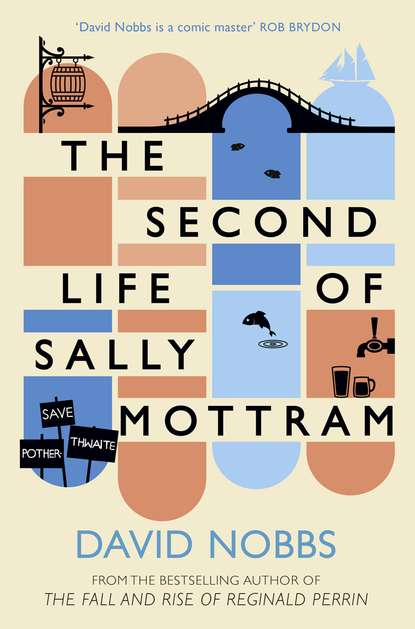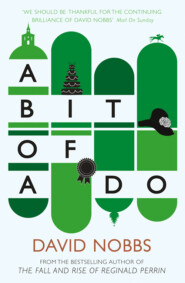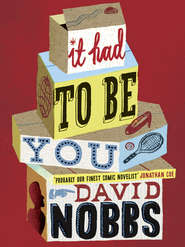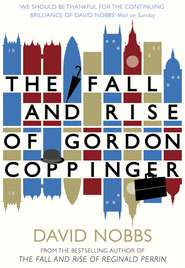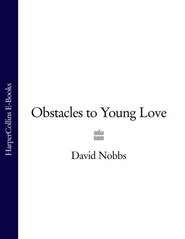По всем вопросам обращайтесь на: info@litportal.ru
(©) 2003-2024.
✖
The Second Life of Sally Mottram
Автор
Год написания книги
2018
Настройки чтения
Размер шрифта
Высота строк
Поля
Four days had passed since she had hugged her sister Judith on the station platform. They’d spent much of it just wandering round Totnes. It was a delightful little town. They’d had coffees and teas and lunches and everywhere the food had been fresh and light and healthy. Judith had talked about the Transition movement, a movement which had begun there and had spread to all sorts of places, including Lewis, Whitstable and Brixton, the Valley of the River Lot in France, Monteveglio in Italy, even Los Angeles. Every bloody self-satisfied word seemed to Sally to be directed at her. Totnes is wonderful. Potherthwaite sucks. Later she would realize that Judith hadn’t meant to have that effect. It was simple pride, marbled with massive insensitivity.
Judith and Sally hadn’t exactly got on badly over the years, it was just that they had never been close. It was the age gap. Judith was eleven years older than Sally. Sally had been a mistake. In every way, she now thought. Judith, selfish though she was, had never been nasty enough to think that. She had regarded Sally as a tolerable nuisance, to be indulged and played with occasionally, but only when it suited her. Sally had regarded Judith as an extension built on to her mother. Life would have been better without the extension, but there were plenty of parts of the house in which it could be ignored. This was their first real attempt to be true, loving friends. Neither of them wanted the attempt to fail, but both of them were aware how fragile it was.
Judith had assumed that Sally’s other purpose in visiting, apart from the need for sisterly friendship in a family rather short of relatives, was to sound out the possibility of coming to live near her. But not too near. Unfortunately, though, she didn’t know of Sally’s straitened circumstances. She hadn’t been to the inquest – ‘Things may come out that it would be better for our future together if I didn’t know’ had been her ingenious excuse – or to the funeral – ‘Unfortunately it clashes with our half-marathon and I’ve promised to do it, it’s for the air ambulance which I approve of totally and I’m quite heavily sponsored and honestly, darling, there’ll be such a crowd at the funeral, all Potherthwaite will be there, I won’t be missed and I would be missed very badly here, darling, and so, difficult though it was, I’ve made my decision, and, sweetheart, I do hope we won’t fall out over it, and you know you’re welcome here any time, anytime, literally any time, except for Henley week of course, but otherwise any time’ had been her almost as ingenious and considerably longer excuse.
So Judith had been very bold and very Judith and had booked with estate agents to visit four houses of different kinds near Totnes – but not too near – carefully chosen, exquisite houses, all good value, but all now hopelessly out of Sally’s reach. And Sally hadn’t mentioned her financial straits and had found that she couldn’t bring herself to tell Judith about them. She despised herself for her weakness, but then she was also despising herself for her lack of love towards Barry, her lack of understanding of him, the complete failure of her life, so her weakness at that moment was hardly surprising.
So she had been forced to agree to visit all four houses. She had already been to three of them. Judith had extremely good taste, and good judgement of other people’s taste. Sally had adored all three, and in coming up with reasons not to make an offer for any of them she had been scraping the barrel – once almost literally, when she had said that she didn’t think she’d be able to reverse out of the garage without hitting the water butt.
Now, seated uncomfortably on a sloping field, in the only patch of grass not covered in rabbit droppings, on a cold evening against which she was inadequately protected, Sally thought about those absurd moments and what a waste of time they had been. And there was still one house to see.
She thought about the emotions that her time in Judith’s bungalow had engendered in her. She had never liked bungalows, but this one was large, airy, tasteful, comfortable, she had privacy, it was perfect. Under the circumstances, after that letter the night before, the perfection had been unbearable. Judith had everything. A villa in Portugal. A flat in London. No man, but then she didn’t want a man. She played golf. She played tennis. She played bridge. She visited lovely restaurants. Sally couldn’t keep up, didn’t play golf, didn’t play tennis, didn’t play bridge, didn’t play life, wasn’t a fun person. Even lovely restaurants palled when you could go every night. In the evenings, after dinner (exquisite) they had been able to watch any film they wanted. To be able to watch any film you wanted, and to want to watch none of them, that was hard to deal with. To have survived six weeks of anguish alone in her home in Potherthwaite, followed by four days of tension in a tiny flat in Barnet, and then to have all the air and all the space you wanted in a superb bungalow in beautiful Totnes, and still to feel claustrophobic, that was difficult to bear.
On the fifth morning, she had desperately needed to go out. Judith was playing something called duplicate, which was a form of bridge apparently, and she’d had to go because her partner could be awkward, she’d had a trauma. Her tortoise had died, and she’d been attached to it. Sally had commented that this must have meant that she had to go around very slowly. The joke had not been a success. But the reason Judith had given had not fooled Sally. Judith had gone because she wanted to, as she had done everything in her life, including retiring with a huge pay-off from a successful distribution company at exactly the time that suited her best.
Sally’d had the house to herself, all that space, and she had felt trapped. She could walk through the conservatory on to the patio, stare at a utopia of conservatories and patios, feel the fresh, unpolluted West Country air on her face, but to her it wasn’t the air, the open air, it was Judith’s air, the enclosed air, the air within the boundaries so carefully drawn up in the documents of sale.
She had walked out, shut the door, not given a thought to keys, had walked through the trim streets, and past the perfect residences towards the river. The River Dart was a rebuke to the River Pother. The quay was an elegant two fingers to the Potherthwaite Quays.
She had taken a boat trip, on impulse. Down the elegant Dart to historic Dartmouth. Beautiful, searingly beautiful, a permanent, living satire on every yard of the Rackstraw and Sladfield Canal.
She had disembarked at Dartmouth, one among trippers, indistinguishable on the outside from the trippers, but not thinking the thoughts of trippers. Not thinking about food either. She had walked through Dartmouth, picturesque Dartmouth, as if it wasn’t there. On on on. Away away away. Destination – none. She had kept thinking that she would stop, turn round, wander back, relish the sunshine. But she was in a place beyond relish, and she must walk, stride, walk energetically from nowhere to nowhere else. She thought of her sister’s lean, taut, tight, sexless body, in the vanguard at fifty-eight in half-marathons, longest drive of all the women in the golf club, away away away. After quite a while, already she was a few miles from Dartmouth. She considered turning round and thought, ‘No. Let her search for me. Let her worry about me. Let her know what anxiety is.’
And so she had come to her cliff edge, far from Totnes. She had been sitting for a long time now, almost nodded off once or twice, to her amazement. Unnoticed by her, afternoon had turned into evening.
She suddenly realized how cold she was. She would need to move around. She stood up, and found herself walking back to the edge. The memory of those ridiculous visits to houses she didn’t want to buy swept over her. Disgust swept over her. She was weak, weak, weak.
She’d show them all that she wasn’t weak. She’d show them how strong she was. She began to stride to the edge, resolute, almost exalted, nearer and nearer.
And then a rather extraordinary coincidence occurred. Except that it might not have been a coincidence, and in that case it wouldn’t have been extraordinary at all. Sally saw a small yacht, beating up the Channel towards Torbay.
She wondered. Could it be? Why not?
She stopped hurriedly. She was only about two feet from the edge. Two feet. Twenty-four inches. The realization of how close she’d been to death sent an electric shock through her.
Would she have wanted to stop if she had not seen the boat? Would she have been able to stop if she had not seen the boat? She didn’t know. And she never would know, that was what was so disturbing. In days to come she would relive the moment, and – it was unnerving – she still wouldn’t be certain that this time she would stop.
She went back to her Droppings Free Zone. She sat down. Her heart began to slow. She took the letter out of her pocket, opened it, pulled at the sheets of paper to get the worst of the creases out.
She read it.
Dear dear Sally …
You don’t necessarily increase the power of your words by repeating them, but at this moment in her emotional life she was grateful for that word – ‘dear’ – and for its repetition.
I know you gave me this address for emergencies, and this is’nt an emergency, but we take each other for granted, and then when you are’nt there we miss you.I am missing you so much. Potherthwaite is missing you. I am also dreadfully worried that you will be so tempted by the southern zeffirs …
She smiled at Marigold’s mistake. She did. She actually smiled. It wasn’t much of a smile, but still, it was a smile. There was something about Marigold.
… that you won’t come back. Please let me know that you will come back …
Could she believe any of this?
Anyway, you said that you were coming back next Tuesday, and I wondered if when you get back we could have lunch at the Weavers’ one Thursday, when all the oldie’s gather for their Pensioner’s Offer’s and we can feel like youngsters again.
What did a few apostrophes matter compared to a warm heart, but had Marigold really got a warm heart? Could she still believe of anybody that they had a warm heart? Could she believe it of herself?
I wondered if you’d mind if we invited Olive and Arnold to join us. Its a funny thing, and people will talk, but I don’t think there’s anything in it, but I may be wrong, but I don’t think so, well I suppose I wouldn’t, would I, but Harry and Jill have gone off together all the way to Fowlmouth in Cornwall to collect his boat, which is a yawl, whatever that is, and sail it back north somewhere so he can use it. He keeps it at somewhere called Emworth or something in Dorset or somewhere, but last back end he got stuck with a bad gale going the wrong way as they do, and no time to bring it back, so its been at Fowlmouth all winter, which has cost a packet, so he’s not keen on paying out to bring it back. Jill’s game for anything, and is very strong, I’ve seen her in the shower’s at the tennis club and I’d put her in the second row if she did rugby she’ll be great with the close-hawling or whatever it is. I think its just convenience and saving money, and no funny stuff, but you know what people are.
I hope you don’t mind, but I know you won’t, you aren’t like that, but I called on Ellie, I hope you don’t think I’m butting in on your parade but I was very moved by what you said about seeing her. She talked of your visits and how they cheer her up.
Laugh of the week. Someone stole a big old illustrated Bible from the church and broke into Sophie Partingtons’ in Canal Basin, you know, the prostitute who’s so active they sometimes say she’s the red-light district on her own, and left the Bible there. Someone with a sense of humour!
Looking forward to next week,
Your fellow damsel in distress.
Marigold xxx
Sally stood up, put the letter back almost lovingly into her pocket, and walked more slowly towards the edge. She looked at the little boat, so bravely mounting the waves on that windy evening. Was it a yawl? What was a yawl? It had two masts, a big one in the front, a smaller one at the back. Was that a yawl?
She wanted to know if this was Harry’s boat. She liked Jill and had taken to Harry instantly, and she so hoped that her life had been saved by them. Oh, it must be them. It just must be.
And then she realized that it didn’t really matter. Even if it wasn’t them, the thought that it might have been them had stopped her, and so they had saved her life anyway.
She waved. She waved frantically. But they were too far away, they didn’t see her, they didn’t wave back. She called ‘Ahoy’. She knew enough about sailing to know that that was what you shouted. She didn’t know what you shouted to fishmongers or solicitors but sailors were easy. You shouted ‘Ahoy’. ‘Ahoy,’ she shouted. ‘Ahoy there.’ But it was no use. They didn’t hear. They didn’t see.
Quite soon they were past her, moving well in the evening wind. She felt flat now. The excitement was over. She began to wonder if they had really saved her life. Or had they only saved it for today?
There wasn’t much point in saving her life if it was just going to be more of the same. There wasn’t much point in saving her life if she wasjust going to exist, not trusting anybody.
It was an awful thought – she was ashamed of it even as she thought it – but if Judith was drowning and somebody saved her life, it would only be of real importance to Judith herself.
Gradually, then, she began to notice her surroundings. She saw for the first time that it was evening, late evening. The very last narrow arc of the sun had disappeared, in its rush to warm Alice at her breakfast in New Zealand. It was late, the wind had dropped but the air had gone very cold with the setting of the sun. There wasn’t a soul in sight, she had no warm clothes, she hadn’t brought her mobile, she hadn’t eaten or drunk a thing since breakfast.
She was frightened. This struck her as pathetic too. She had been contemplating death, almost welcoming it, and now she was frightened of the cold and the dark and the loneliness.
Where should she walk? Inland. Nothing else made sense.
She found a hedge. She couldn’t clamber through it. She walked along it and found a gate. She couldn’t open it. She tried and tried. She tried to clamber over it. She tripped and fell in a heap, hurting her knees and an elbow. At least she had fallen into the next field. She couldn’t get up. She hadn’t the energy. She was starving and dehydrated.
Fight, Sally. This is all your stupid fault. Show your mettle.
Increasingly, we live in a virtual world. Have some virtual food, Sally. You need some virtual calories.
She ate two virtual bananas liberally heaped with virtual sugar and virtual double cream. It was virtually useless.
Or was it? She was still starving, but at least she found the energy to stand up. She tested her arm and her legs. Pain, but bearable, and nothing broken.





